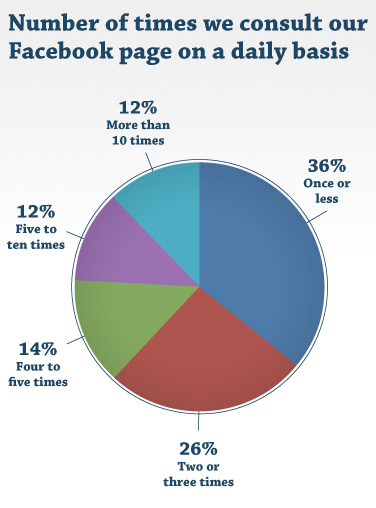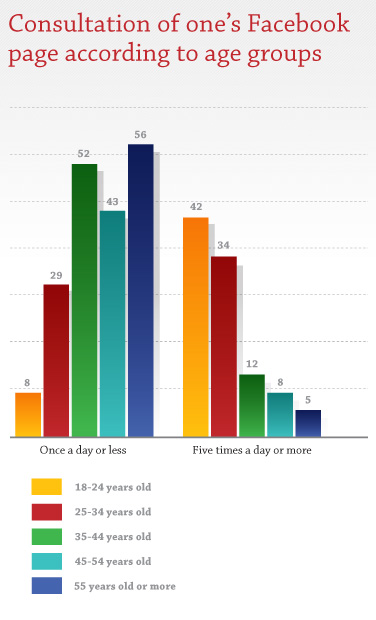Facebook, Proceed with moderation
Facebook, Proceed With Moderation!
Yes, Facebook can create a form of dependence.
Facebook and its popularity are no exception to the tendency we have of being dependent on different technological innovations. The television provoked and continues to provoke a dependency with certain groups. Then came the arrival of video games and the internet. Now, we have social networks, with
Facebook leading the pack.
A little more than one third of individuals (36%) consult their Facebook page only once a day, while one fourth (24%) of participants consult their page more than 5 times a day, and finally 12% consult it more than 10 times on a daily basis. For the latter, it is quite evident that they are dependent on the social network and their RHI consequently suffers. Their RHI is of 71.40, five points below the national average.
After considering the sheer amount of time one spends on Facebook alone, we can better understand why a person's average time spent on the internet daily, outside of work hours, is so high, we're talking about 2 hours and 38 minutes.

No one will be surprised to hear that the consulting of one's Facebook page varies considerably by age group. Therefore, for a large number of younger individuals, Facebook becomes their principal mode of communication, replacing traditional emails.

Facebook and happiness
In light of the data collected with this third RHI enquiry on social networks, it is apparent that if Facebook is indeed a phenomenon that is generally positive in terms of different exchanges and modes of communication, it has no effect on improving the levels of happiness of its users. In fact, in this latest enquiry, individuals who did not have a Facebook account systematically had a slightly higher RHI than all of the other categories of Facebook users.












